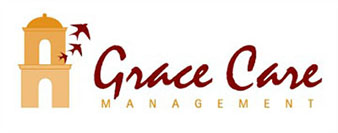When people ask me how being a Geriatric Care Manager differs from being a “regular nurse,” I always think of many answers. So, I usually respond by saying, “A Geriatric care manager is first and foremost a patient advocate.” But the picture is hardly drawn by those pale words. How do I explain that I stand beside elderly people who have no one close enough to help?
Unfortunately, even when there is family, they are sometimes irrelevant. How do you explain to others that “family” means people who care, and that many times blood is just not thick enough? How do you explain that the simple presence of love, mixed with skill and persistence, can change someone’s world?
What we do for the elderly is rock the boat; that’s not the old‑school version of Florence Nightingale. While the more traditional nurse’s job is simply to implement a doctor’s orders and perform clinical jobs as a part of caring that has well‑defined boundaries, our job is to actively change things for the better. We don’t just follow well‑used templates; we create new ones as needed for quality care that fits each unique situation we find.
That often means challenging the status quo, thinking out of the box. That often means protecting a patient from family members who may not have their best interest at heart. Sometimes it means supporting a patient or family member the health‑care providers don’t like ‑‑ a job not for the timid or the risk‑averse.
We took Jesse out of the board‑and‑care where the owners were manipulating her bank accounts and drove her to the refuge of a safe house.
We hid Phyllis from the rages of an abusive, alcoholic son.
We helped a daughter say no to a psychiatrist who wanted to “hospitalize” her depressed 80‑something mother for ECT (electro‑shock therapy).
We helped Barbara get her new leg when others thought her too old to bother with and watched her giggle as she walked on it for the first time.
We insist that hospital staff treat our patients in facilities with the respect they deserve and we move them to other facilities if they don’t.
We help families dismiss doctors who treat their elderly like the lepers of Molokai and refuse to listen to them.
We won’t shrink from a fight with other health‑care providers to make sure our patients get the pain medication they need when suffering and dying.
We will make sure our patients get chicken matzo ball soup and chicken liver sandwiches from the deli if that’s what they need to make life worth living that day. Or fresh flowers and Chopin or Nestle’s Crunch bars.
We give full‑body massages and sing “Moon River” while doing it.
We have pianists come and play the baby grand where arthritic fingers no longer can.
We let them drink gin if they need to, eat steak when they’re sick to death of nursing home fare and refuse to force-feed them when they say they are not hungry.
We will not patronize them, dismiss their fears or shame their weaknesses.
We will not only give them pills and perform clinical duties, but we will honor them, love them and serve them to the best of our abilities as long as they are in our care.
We will not let them fall through the cracks in the health‑care system. We will not let them be neglected. We will never let them die alone.
The elderly many times cannot even raise their frail little arms on their own behalf, let alone a voice or a pen. Geriatric care managers and patient advocates count it their privilege to do it for them.


